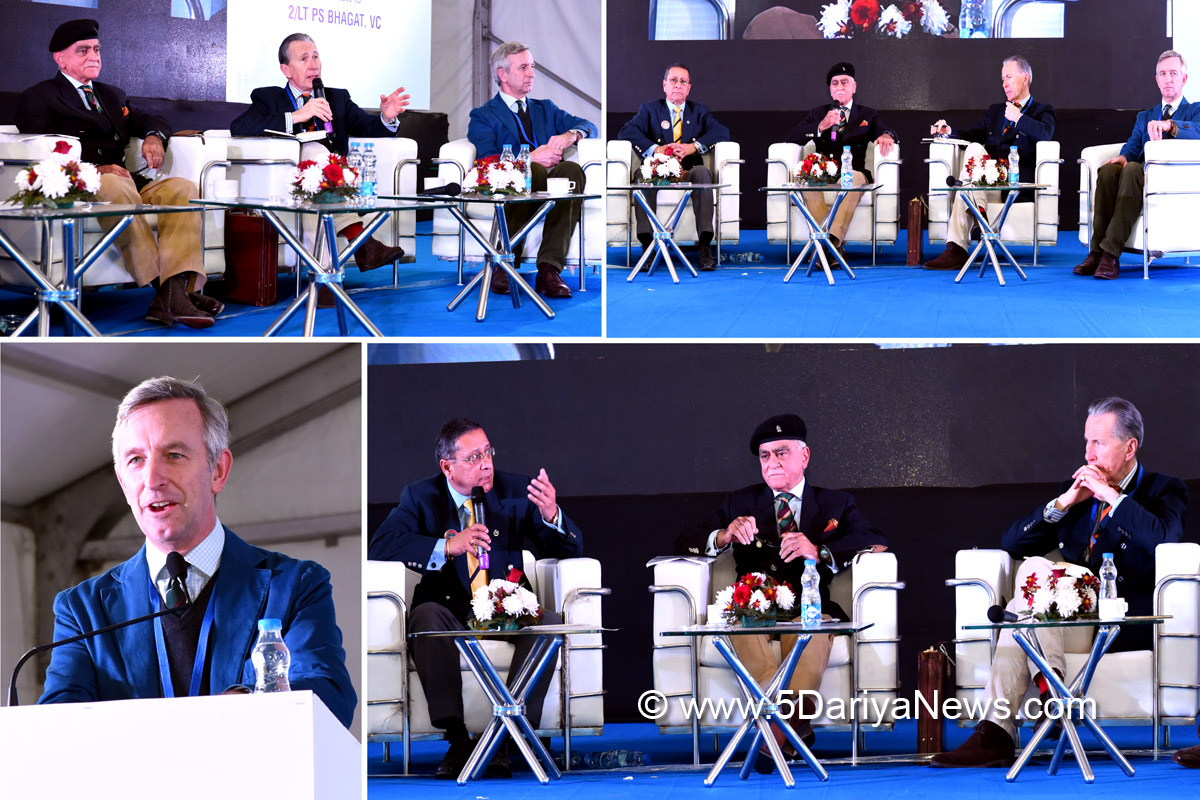
An interactive session on the topic “The leadership and campaigns of Field Marshal Slim” was held on the second day of Military Literature Festival, here today. This session was moderated by Lt Gen (Retd) TS Shergill and the participants included Maj Gen (Retd), Col (Retd) Dr Robert Lyman and Brig (Retd) Allan Mallinson. During the session, all the speakers said that Field Marshall William Slim was a soldier’s soldier and was known more as an Indian general, than a British general.While moderating the session, Lt Gen TS Shergill said that Field Marshal William Slim was a fine manager of men and in return, Slim’s men saw him as one of them. He was above all a soldiers’ soldier. It was because of this quality, that some even called him Uncle Bill. He said that Slim was considered an Indian general than a British General by his troops and was a great motivator.Col (Retd) Dr Robert Lyman said that it was in March 1942 when Field Marshal William Slim was promoted to command Burma Corps, which had been chased out of Rangoon (Burma) by the Japanese. Heavily outnumbered, Slim was forced to withdraw to India. But he made sure the 900-mile retreat did not turn into a rout, leading a controlled military withdrawal. He said that William Slim saw active service in both the first and second world wars and was wounded in action three times.
During the Second World War he led the 14th Army, the so-called “forgotten army” in the Burma Campaign. After the war he became the first British officer who had served in the Indian Army to be appointed Chief of the Imperial General Staff.Brig (Retd) Allan Mallinson said that William Slim undertook a partially successful attack in the Arakan in February 1944. Then, in the battles of Imphal and Kohmia, he repelled a Japanese invasion of north-east India. He said that William Slim was a hardened field soldier who had learned his trade on the Western Front and in the Indian Army, Slim combined troop-leading and training skills with personal and moral courage as well as charm.Maj Gen AP Singh said that Field Marshal William Slim had an excellent relationship with his troops – the Forgotten Army, as they called themselves. In his book, Defeat into Victory, he tells of the malaria rates among his units being 70%, largely due to noncompliance by his soldiers with the foul-tasting medicine they refused to take. Slim did not blame his doctors for this problem, but placed the responsibility on his officers. After Slim dismissed a few officers for high unit malaria rates, the others realised he was serious and malaria treatment was enforced, dropping the rate to less than five percent. The combat effectiveness of his army was thus greatly enhanced. This physical and mental turnaround in the army under him was a contributing factor to the eventual defeat of the Japanese in Burma.
